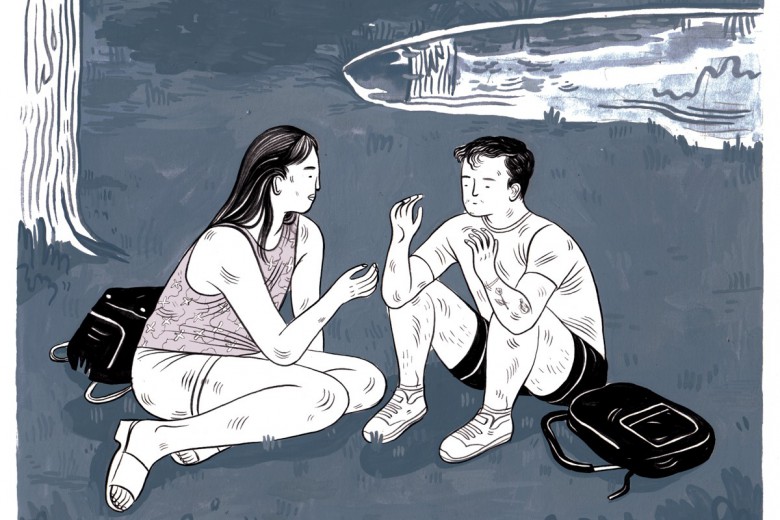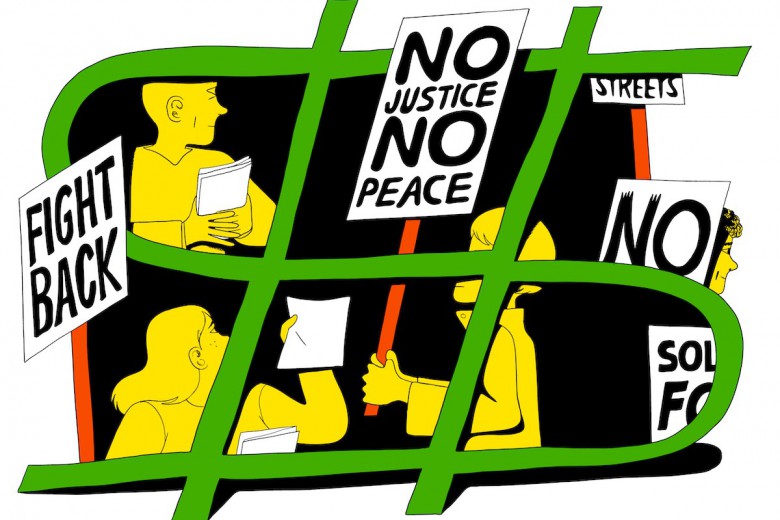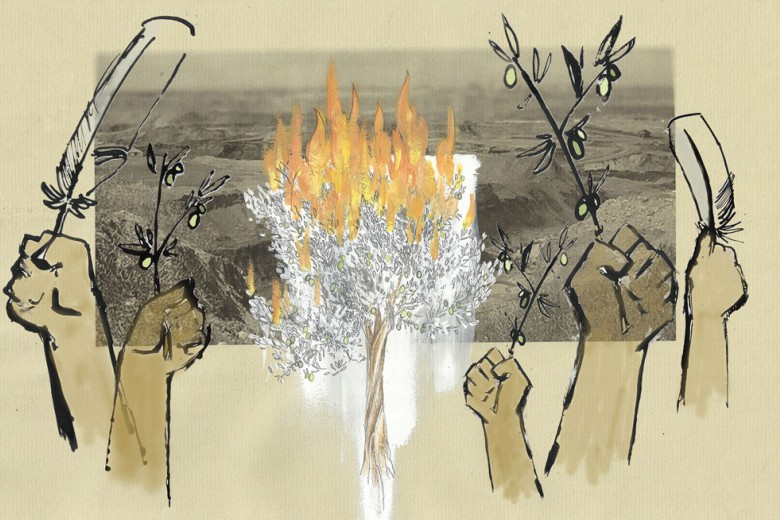“Let them demonstrate, just as long as they continue to pay their taxes.” -Alexander Haig
If you feel strongly that it is wrong to pay for war and militarism, then you are a conscientious objector to military taxation. If you act on those beliefs by redirecting the military portion of your taxes towards a peace tax trust fund that invests in non-violent programs, then you are an active conscientious objector to military taxation.
In times of conscription, many governments recognize the rights of conscientious objectors-people whose ethics or religious beliefs forbid them from killing people during a war-to refuse military service. During the Second World War, for instance, Canada had about 10,000 conscientious objectors to military service. Instead of participating in killing, they were given alternate duties in agriculture, industry or other work.
In Canada’s current war in Afghanistan, however, most Canadians’ participation in the war is limited to the tax dollars they pay towards it. This makes it much more difficult for conscientious objectors to remain true to their convictions. A small but growing movement is seeking to change that.
Today, fewer than 300 Canadians are actively involved in conscientious objection to military taxation. One reason for the low numbers of objectors is the lack of any formal, government-sanctioned “alternate service” option for military taxes. Indeed, Canada does not yet have a law to enable conscientious objectors to military taxation to redirect a portion of their tax dollars towards non-violent programs.
Conscience Canada, a group that advocates for the rights of conscientious objectors, has been working for almost 30 years to obtain such a law. Over the years, many Canadians have withheld the military portion of their taxes and some have even gone to court to try to prove that the government is obliged-by virtue of our Charter of Rights and Freedoms and by historic precedent-to respect the rights of conscientious objectors to military taxation.
Many people have their taxes deducted by their employer, however, so it is logistically cumbersome for them to withhold the military portion of their taxes. But even if a conscientious objector to military taxation can’t withhold the military portion of their taxes, they can still let the government know that they want their taxes spent on non-violent security-building measures rather than the military by completing the Peace Tax Return that Conscience Canada publishes each year at tax time.
As Justice Thomas Berger once stated, we live in “an era in which citizens’ taxes, rather than their bodies, are conscripted.” Indeed, conscientious objectors to military taxation argue that taxpayers have a key role to play in building a culture of non-violence. Edith Adamson, one of the founders of Conscience Canada, once remarked that, “War now depends more on money than on personnel; it only took 12 men to drop the bomb over Hiroshima, but it took millions, perhaps billions, of taxpayers’ dollars in Canada, Britain and the United States to develop that bomb.”
Why object to military taxation?
It is surely even more objectionable for those whose scruples forbid participating in war to pay others to participate rather than to enlist themselves. And refusing to pay war taxes can be a very powerful act. This simple act of refusal raises awareness about the role our taxes and our government’s foreign policy play in fostering militarism, and constitutes an important counterbalance to such policies. Former U.S. Secretary of State Alexander Haig made the significance of war taxes explicit when he said, while watching a large anti-war demonstration, “Let them demonstrate, just as long as they continue to pay their taxes.”
Dedicating our financial resources towards a peace fund enables us to begin thinking strategically about all the things that could be achieved if the resources currently being devoted to war were redirected towards meeting fundamental needs. The impact of this shift would be monumental: the World Game Institute has tallied up the cost of funding 17 programs for “what the world wants,” including removing land mines, eliminating starvation, providing clean, safe energy through efficiency and renewables, providing health care and addressing the AIDS epidemic, stopping deforestation and soil erosion, and more. The total comes to less than one-third of the $1 trillion the world currently squanders on militarism.
Conscientious objection and the war economy
Our economic system is set up like a Monopoly game, with wealth inevitably concentrating into fewer and fewer hands as the game progresses. Like a cancer, this concentration of wealth and power requires endless growth, fuelled by the exploitation of economic peripheries and marginalized populations. As we progress into the “Monopoly End Game,” however, it becomes increasingly difficult to find new ways to feed the cancerous economy. War is essential at this stage, as Mike Nickerson explains in his book Life, Money & Illusion: “The “˜War on Terror’ has helped keep money circulating. It is an ultimate make-work program that provides huge growth opportunities in the manufacture of massively destructive weapons and then doubles those opportunities through contracts to reconstruct the things those weapons destroy.”
By refusing to pay for war, we are objecting to the economic system we have created and increasing the political pressure to implement a new system. In the francophone world this connection has been made clear through the creation of a new movement for “objectors to growth” (objecteurs de croissance) which is a pun on the French term for conscientious objector, objecteur de conscience. Indeed, in Quebec many of the same people who have been involved in the peace tax movement are currently involved in the movement for voluntary simplicity. And throughout the world, groups and individuals advocating conscientious objection have traditionally also advocated reduced consumption and support for local economies.
Two common objections to the peace tax movement
1. “But we’re a peacekeeping nation”
Some people who object to the peace tax movement cite Canada’s traditional role on the world stage as a peacekeeping nation. And indeed, Canada was once among the top 10 contributors to UN peacekeeping missions. Now, however, of the 60,000 UN peacekeepers currently deployed, only 60 are Canadians. By way of contrast, Canada currently has 2,800 military personnel deployed to Afghanistan as part of NATO’s International Security Assistance Force.
And indeed, while some conscientious objectors object to any use of weapons, many would willingly contribute to peacekeeping missions, even if weapons were involved, as long as those missions were acting to uphold the law and protect human rights. It would be necessary to thoroughly rethink the way peacekeeping forces are trained and deployed in order to meet these criteria.
2. Isn’t this just a way to avoid paying taxes?
When some people first learn of the peace tax movement, they may suspect that conscientious objectors to military taxation are motivated by greed-keeping more of their tax dollars for themselves rather than paying their fair share to the government.
But this is no tax scam. Through Conscience Canada and the Quebec-based group Nos impôts pour la paix (Our Taxes For Peace), Canadians can withhold the military portion of their taxes and invest it instead in “peace tax” funds maintained by these groups. Those deposits will be returned to the depositor on request. For instance, if Revenue Canada were to seize money from a conscientious objector’s bank account in order to obtain the full amount of taxes owed, the objector would probably want their deposit returned.
Knowing that some of the most horrible crimes ever committed were “legal” reminds us that it is our duty to follow the dictates of our conscience, even when these principles conflict with what is legally permissible. Current and former parliamentarians from all of Canada’s major political parties support the passage of peace tax legislation. Indeed, the most recent parliamentary introduction of the Conscientious Objection Act was on June 13, 2007, when NDP Member of Parliament Bill Siksay introduced Bill C-460, the most up-to-date version of the bill. Many people who are not themselves conscientious objectors may still want to support this bill, because its passage would, as Siksay has pointed out, help bring our policies more closely into line with our purported values. Canada’s constitution, for instance, is based on the principles of “peace, order and good government,” yet militarism systematically undermines those values.
One of Canada’s most influential conscientious objectors to military taxation is Conservative Senator Nancy Ruth: “I am one of these Canadians who for some years has withheld from my income tax payment the percentage of the military budget. I have put that money on deposit with the peace tax fund held by Conscience Canada. I encourage you to do so too.”
The promise of “alternative service” for tax dollars
The Stern Review Report on the Economics of Climate Change argues that it would cost citizens of the world’s richest countries $430 per person per year to prevent the most disastrous effects of climate change by cutting greenhouse gas emissions. In 2007, Canadians spent more than that-about $546 per person-on the military. And many would argue that cutting greenhouse gas emissions would promote true security, whereas joining in the so-called “war on terror” actually undermines our security.
Since there is a real need for humanitarian intervention to protect vulnerable populations in many places in the world, many conscientious objectors to military taxation already support or participate in non-violent peace force missions such as those organized by Peace Brigades International, the Christian Peacemaker Teams and the International Solidarity Movement. Imagine how much more effective these efforts could be if these groups had access to infrastructure and resources on par with those currently allocated to our armed forces.
Jan Slakov has been a member of Conscience Canada and its predecessor for over 25 years. She lives on Salt Spring Island.






